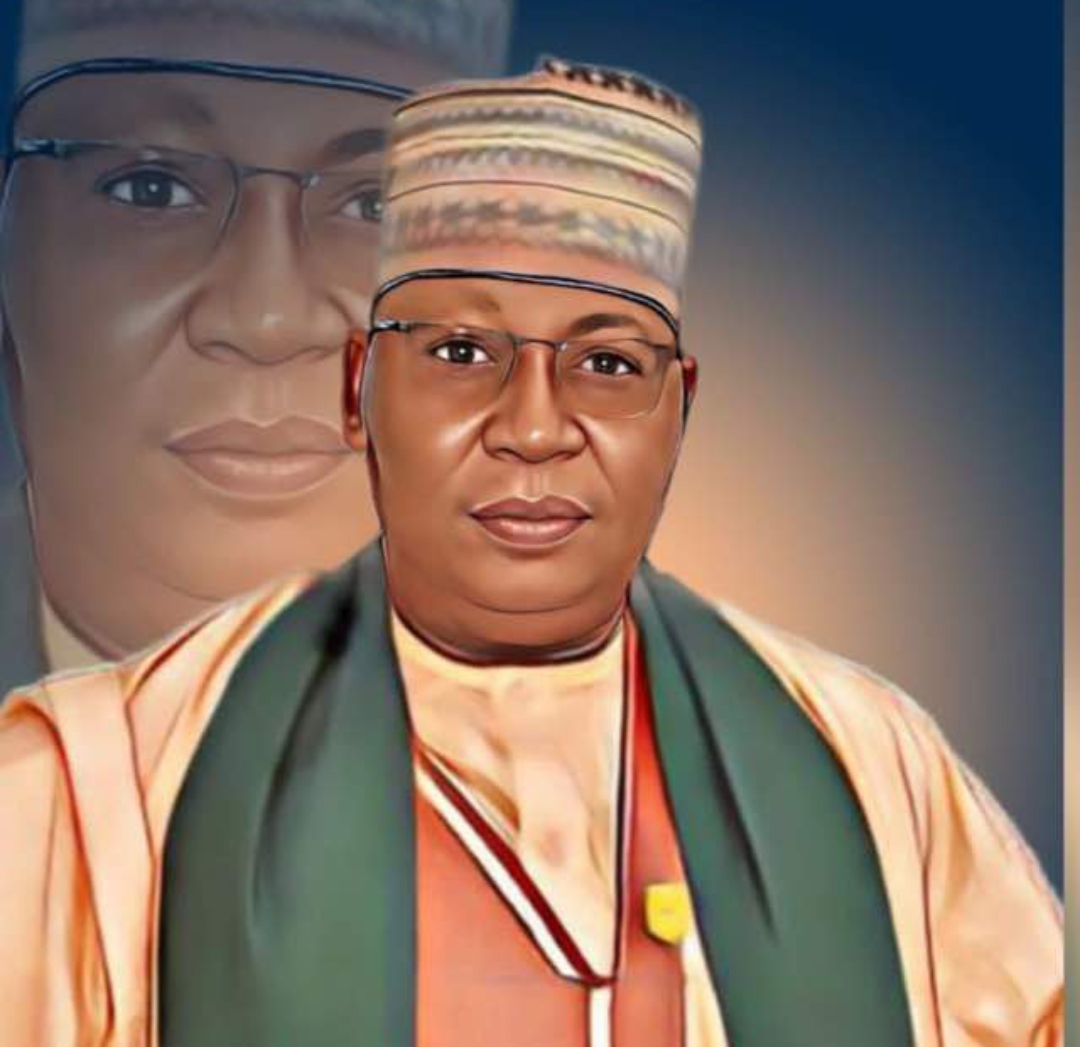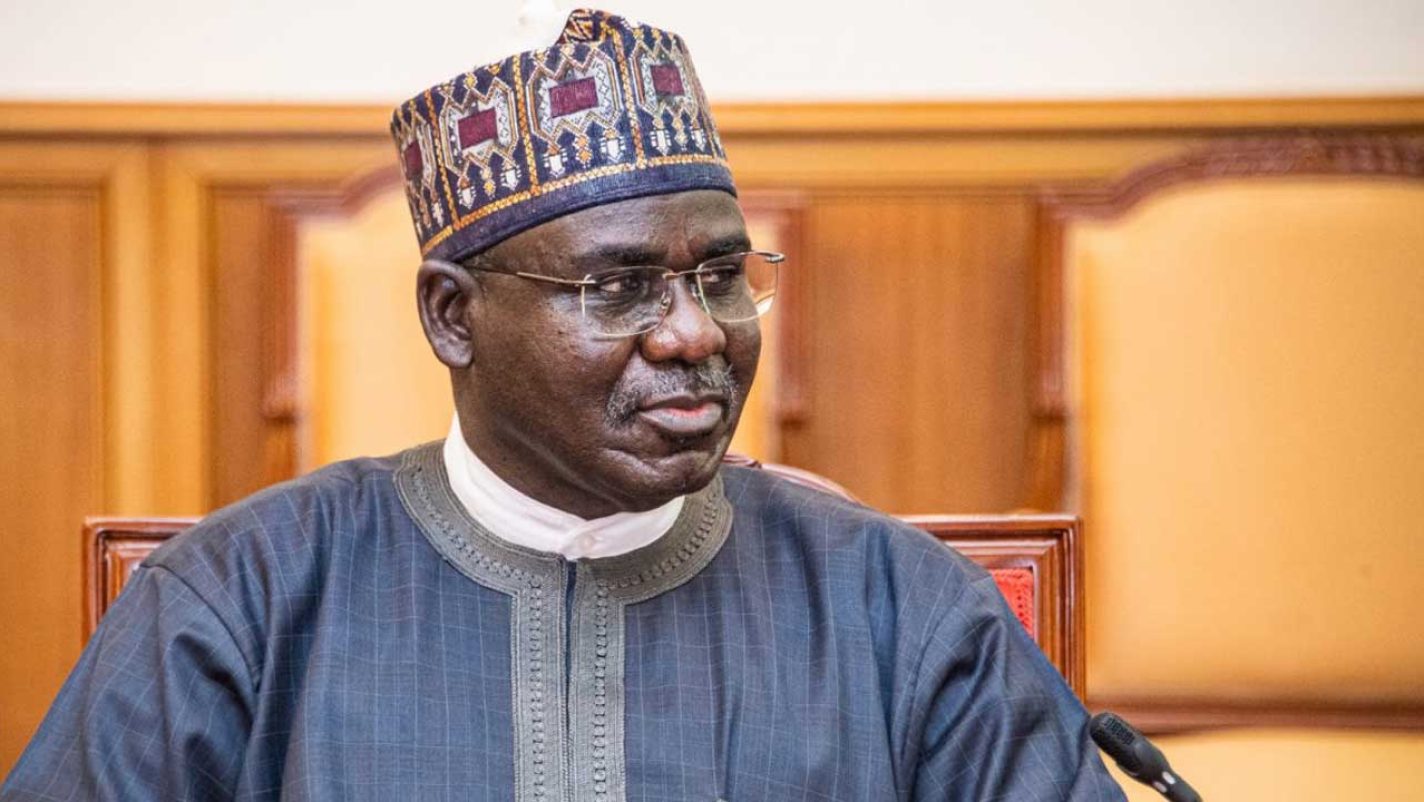REVIEW OF, ‘THE LEGEND OF BURATAI 2’
By Hannatu Lot Dickson
The Legend of Buratai Volume 2 is authored by General Tukur Yusuf Buratai, the former Chief of Staff of the Nigerian Army. The book was Published by Sprezzatura Publishing Ltd. Cover design by Mereo Books. It was published October 13, 2021 in English Language. It has 125 pages with ISBN-10: * 186151915X and ISBN-13: * 978-1861519153.
The author Tukur Yusuf Buratai CFR psc(+) NAM GSS ndc (BD) was born 24 November 1960. He is a retired Nigerian army lieutenant general, former Chief of Army Staff appointed by President Muhammadu Buhari in July 2015, and Nigeria’s Ambassador to the Republic of Benin. He was commissioned into the Nigerian Army in 1983 and has had multiple command, administrative, and instructional appointments.
The Legend of Buratai 2 is a novel base on true-life story of General Tukur Yusuf Buratai, the former Chief of Army Staff. It is a novel of eight (8) chapters and has one hundred and twenty-five (125) pages. Each of these chapters and pages is so richly engaging and informative from start to finish.
Just a recap of the plot summary, the book is the enthralling true-life story in his own words, General Tukur Yusuf Buratai, the Chief of Staff of the Nigerian Army, who rose to legendary status by dint of hard work, bravery, diligence, excellence and honesty. His journey through life is presented as an exemplary story for all who would aspire to follow his path. His childhood and formative years were also captured.
The preliminary pages of “The Legend of Buratai 2” begins with the titled page where the titled of the book was boldly written and the author’s name. Then followed by the cover page design which contains the cover photo which was taken in Ngamdu. The Chief of Army Staff, Lt. General Tukur Yusufu Buratai is clearly seen in the picture with troops during operations against Boko Haram terrorists at the Nigerian Army Special Super Camp Ngamdu, Borno State in April 2020. He was practically leading the combat operations. Them followed by the content page which outlines the book’s structure, listing chapters, which helps readers navigate the book’s organization and content.
The Photographic Acknowledgement section credits the sources of photographs used in the book, acknowledging photographs taken from the personal album of the author. Followed by a heartfelt message dedicating the book to all young people in Nigeria, and especially those of the Nigerian Military School and the Nigerian Defence Academy.
The Publisher’s Note and acknowledgement pages expressed gratitude while the Forward was written by Major General Paul Tarfa mni (Rtd), who described General Buratai’s records of service as Chief of Staff of Nigerian Army as legendary and cannot be surpassed. ‘He is a General who inspires his subjects by leading from the front’. He further, provided context, endorsement, and insights into the book’s significance.
The author begins chapter one by talking about the beginning which captures the lineage, nuclear family and the journey of Yusufu Buratai especially when he joined the RWAFF. Chapter four depict the miraculous escape from the pond as a child, Dr. Gidado Kumo and John Atanda spoke in chapter three and four, while chapter five and six described the author’s encounters with Snakes and Ghost respectively. chapter seven followed with matters bordering on patriotisms and chapter eight list several principles guiding Lt. General TY Buratai, a few out of those principles are: Do not bother about what people say,; Commit to improving yourself to the extent that you do not have time to compete or criticize others; Let excellence be your trademark anywhere you find yourself; Do not be too proud to retrace your steps back to the right path; Listen more and say less; Always lead with courage or not at all; Honour your words as your bond and never make a promise you can’t keep…
The plot is set in Buratai town, Biu Local Government Area of Borno State to Potiskum, Yobe State. The genre is non-fiction.
The book, ‘The Legend of Buratai 2’ is the best pick for young minds in need of inspiration and mentorship. It is a captivating and fascinating masterpiece, rich in original history, military tactics, strategies and important life lessons with a touch of spirituality straight from the mind and experiences of true and pragmatic General TY Buratai.
The Legend of Buratai 2 has the potentials to recoup reinvigorate patriotism to our fatherland Nigeria. It also has the capability and potentials to make a young mind dream and do everything in their powers to live their dreams just like Lt. General TY Buratai.
The book is so real, it’s not a conventional love story with a perfectly Happy-Ever-After. It was infused with strong themes, I love how Lt Gen. TY Buratai recollected his childhood and formative years, how he was educating us on how to be patriotic and how he described ‘the wretched rustic life of a terrorist’ infused in a poem titled, ‘ARE YOU A TERRORIST?’
The themes in “The Legend of Buratai: Volume 2” include
– Hard work: General Tukur Yusuf Buratai’s rise to legendary status is attributed to his diligence and hard work.
– Bravery: General Buratai is known for his bravery and military tactics.
– Excellence: General Buratai’s journey to excellence is presented as an exemplary story for all who would aspire to follow his path.
– Honesty: General Buratai’s honesty is one of the key characteristics that contributed to his legendary status.
– Patriotism: The book is capable of reawakening patriotism to one’s fatherland, according to Moses A. Uyang, author and humanitarian.
– Diligence: Buratai’s diligence is another factor that contributed to his success.
The book is practically a handbook or a catalyst for youngsters who dear to dream, who wants to love and serve their country whole heartedly, be patriotic and serve humanity in all earnest and honesty.
The book offers a wide range of literary appreciation and acceptance, historical sources, and educative values. It is a foundation for historical and otherwise critical evaluation.





 celebrity radar - gossips5 months ago
celebrity radar - gossips5 months ago
 celebrity radar - gossips5 months ago
celebrity radar - gossips5 months ago
 Business4 months ago
Business4 months ago
 Business4 months ago
Business4 months ago











